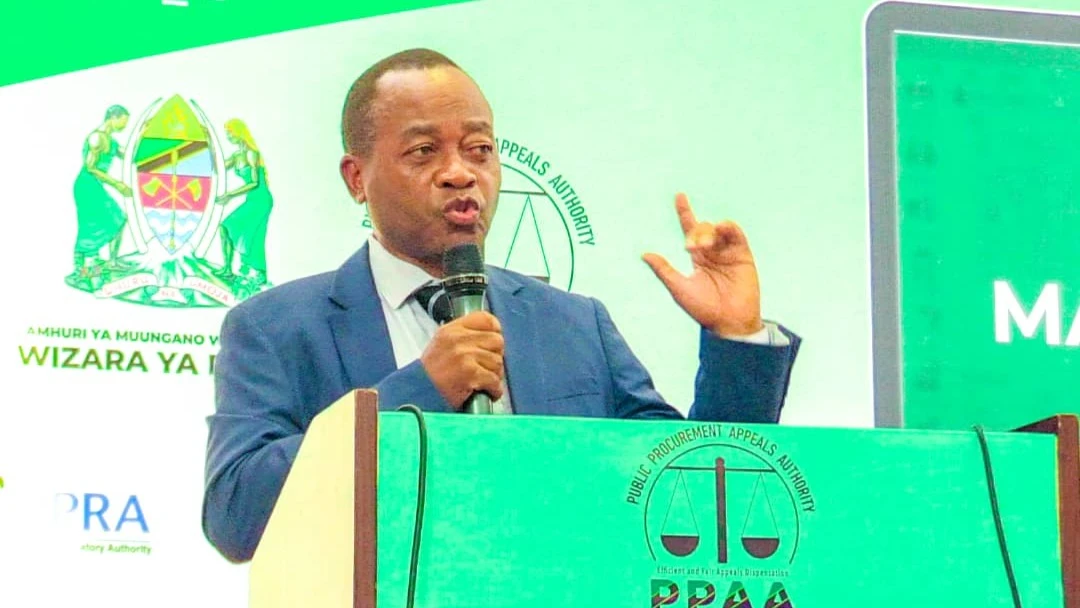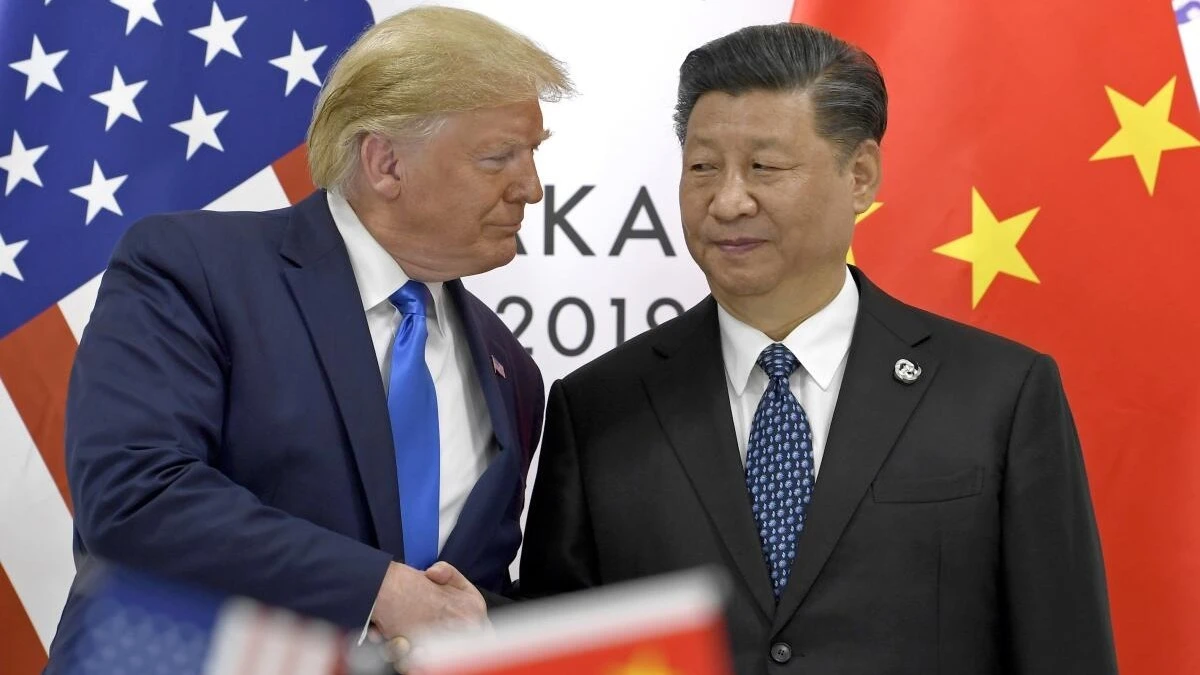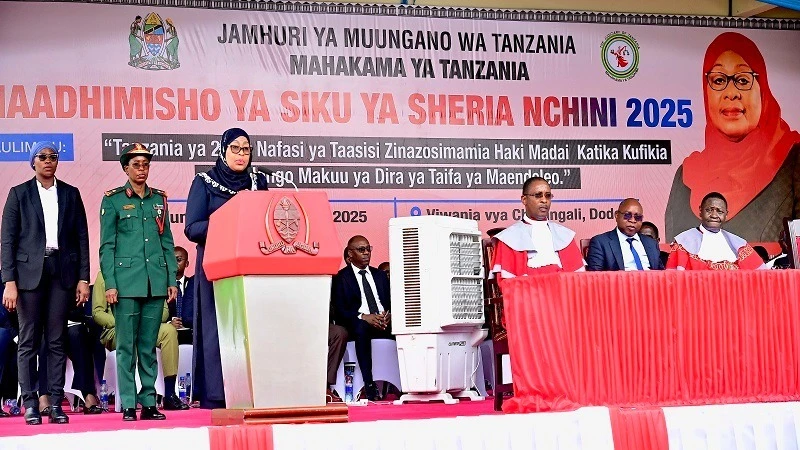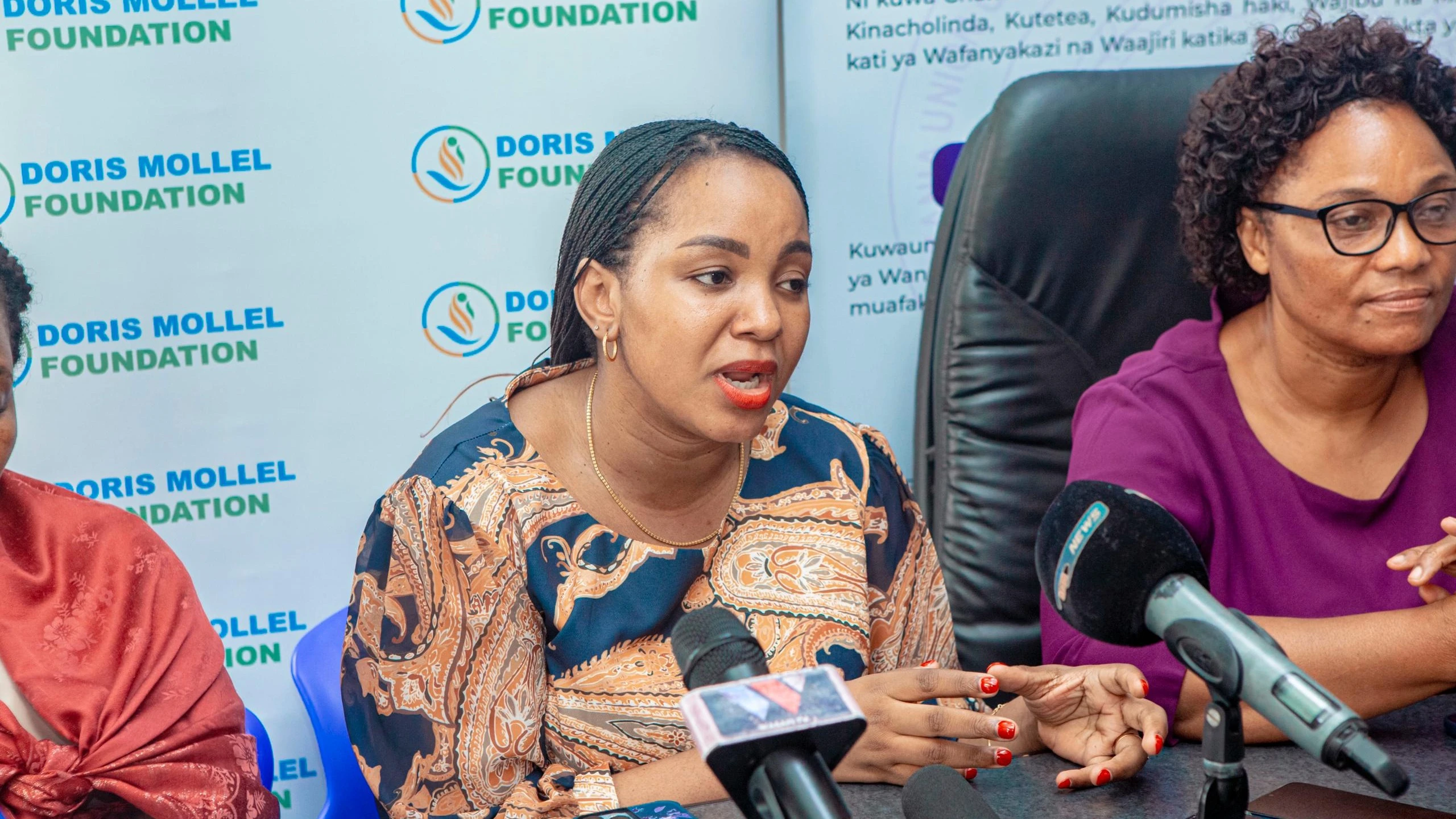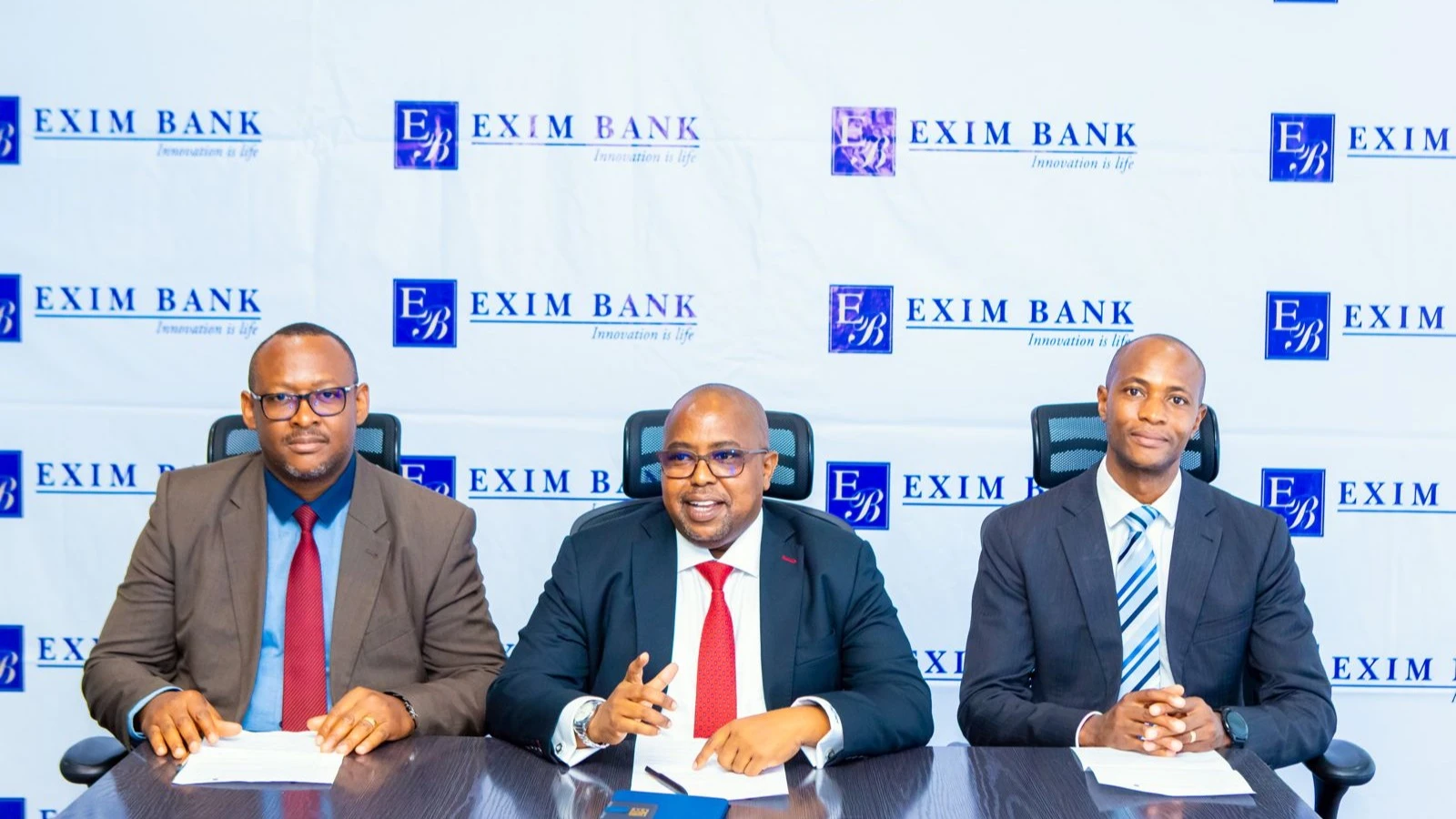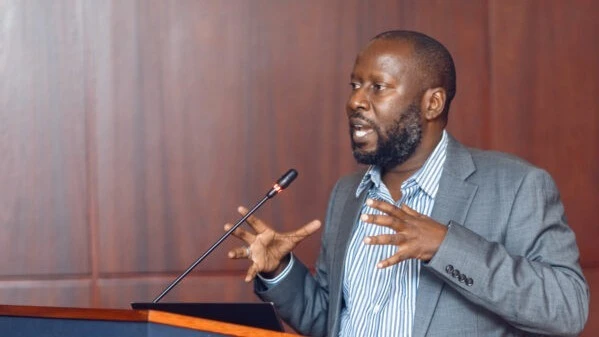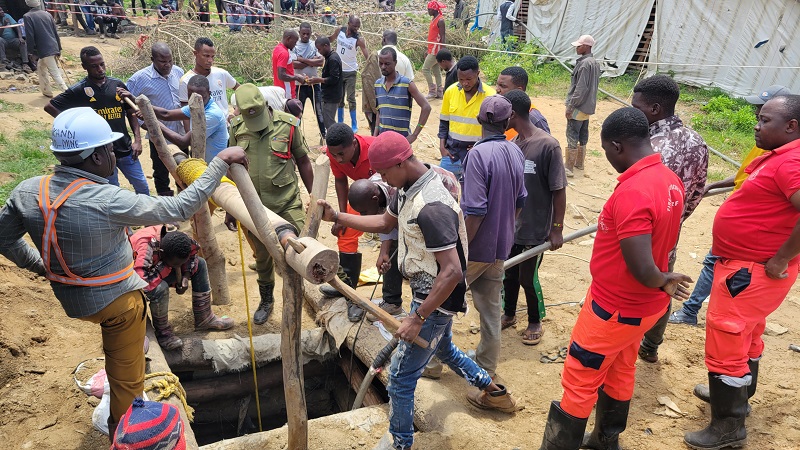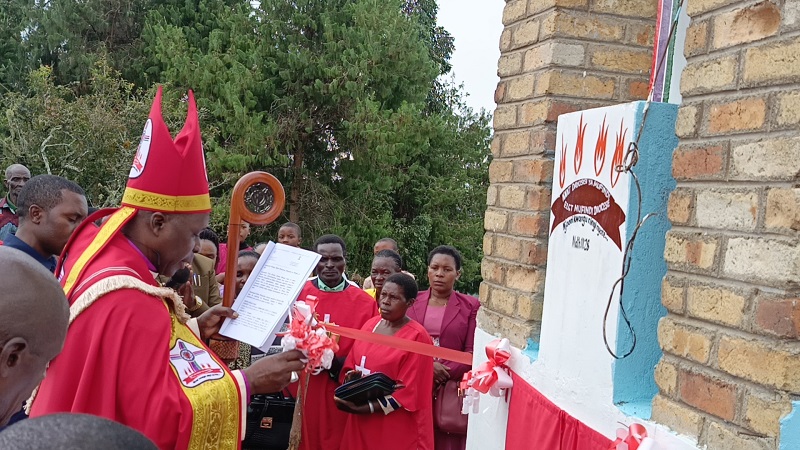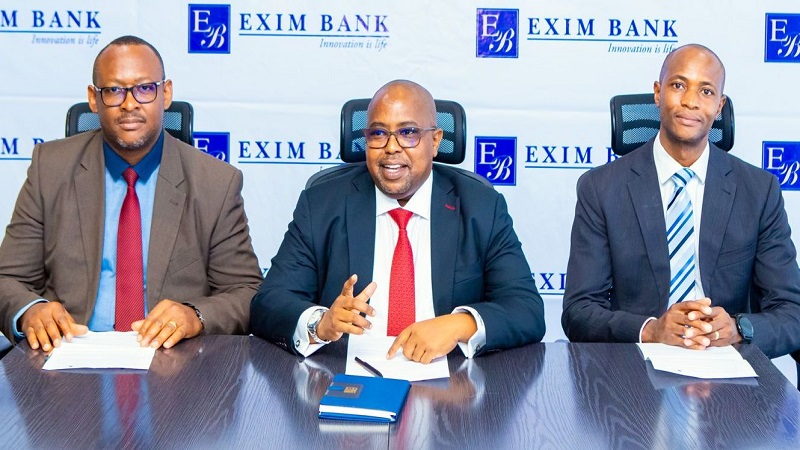Kampala, Juba commit to boost ties, border operations at the Elegu-Nimule border post
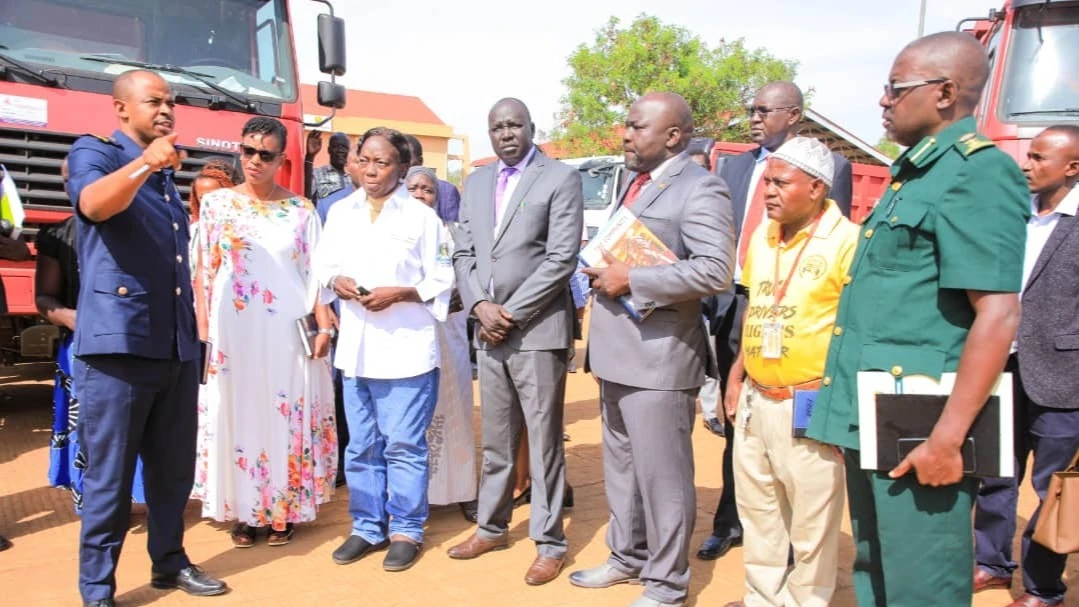
UGANDAN and South Sudanese government officials, trade representatives and other stakeholders convened at Nimule Border on Tuesday for a high-level joint border sensitisation mission focused on strengthening cross-border trade relations and fostering regional integration.
The mission provided a platform for in-depth discussions on various issues impacting trade between the two Partner States, with a particular emphasis on the implementation of One Stop Border Posts (OSBPs) and other trade facilitation measures.
A key highlight of the mission was the in-depth review of the performance of the OSBPs, which aim to streamline clearance processes and enhance security measures at border points. Stakeholders underscored the importance of consolidating various government agencies into one central location to expedite clearance times and simplify procedures for cross-border traders.
Presentations from both Partner States’ delegations revealed a significant increase in traffic between the two countries, highlighting the growing importance of efficient trade facilitation measures. Despite progress, challenges such as differing operational hours and tax regimes were identified, emphasising the need for harmonisation and coordination between border authorities to ensure smoother trade operations.
Reactions from stakeholders echoed the call for improved understanding of OSBP procedures, gender-sensitive integration efforts and the need to address environmental challenges affecting trade activities in the area, with particular reference to floods known to frequently affect the Elegu-Nimule area.
Other key recommendations included the need for capacity building for traders to fully appreciate and experience the benefits of the EAC integration and infrastructure development to support cross-border trade.
Dr Anne Itto, East African Legislative Assembly (EALA), Member of Parliament, said that the Community had put in place various initiatives to facilitate trade and regional integration, and OSBPS take centre stage.
“If we do not have the free movement of goods and people, then we do not have integration” she said. “There is therefore an urgent need to ensure there are facilities to effectively facilitate trade on both sides on the Elegu-Nimule border,” said Dr Itto.
Annette Ssemuwemba, EAC Deputy Secretary General in charge of Customs, Trade and Monetary Affairs, commended all border agencies for their commitment in ensuring services were offered despite challenges in the execution of their respective mandates.
In responding to the matters raised, the Deputy Secretary General said that the EAC Secretariat would work jointly with Uganda and South Sudan in the development of strategies aimed at transforming operations at the Elegu-Nimule border.
“The Secretariat has taken note of all challenges raised and recommendations offered for improved trade facilitation. We shall develop an action plan that incorporates all issues raised, stakeholders charged with ironing out these issues and the implementation timeframe - short, medium and long term,” added Ssemuwemba.
Ssemuwemba further said that longer-term interventions such as infrastructure development, IT systems interconnectivity and the provision of facilities for women cross-border traders were essential for sustainable progress and prosperity at the border.
Adv. Beny Gideon Mabor, Under Secretary in South Sudan’s Ministry of EAC Affairs, said that the deliberations of the day were centred on the Customs Union and Common Market, both pivotal components of the EAC integration agenda. “We have identified several challenges impeding the seamless functioning of OSBPs, ranging from issues within the mandate of Partner States to logistical hurdles,” Mabor said.
“The Government of the Republic of South Sudan is committed to addressing these challenges by implementing necessary measures to operationalize OSBPs,” said Mabor.
“I recognise that certain decisions can be expedited without the need for OSBP structures, we pledge to implement these with urgency,” he added.
Representing the South Sudan Minister of Trade and Industry, the Advisor to the Minister of Trade and Industry in South Sudan, Simon Nyang, said that the OSBP review meeting was critical to the Ministry of Trade and Industry, adding that the Ministry will strive to implement the recommendations of the meeting.
Rebecca Kadaga, Uganda’s 1st Deputy Prime Minister and Minister of EAC Affairs hailed the diligent efforts of all border agencies in facilitating the movement of goods.
Kadaga underscored the urgent need for South Sudan to expedite the implementation of the EAC Customs Union Protocol.
“This acceleration is imperative in ensuring citizens enjoy the full benefits of the EAC integration,” said the Minister.
“In areas where legislative frameworks to facilitate the implementation of the Customs Union remain pending, I implore the Republic of South Sudan to actively seek support from the EAC Secretariat to conclude the same,” said Kadaga.
The Minister reaffirmed Uganda’s commitment to ensure enhanced collaboration of the border agencies from the two Partner States.
“Collaborative efforts are indispensable to navigate the complexities of integration, with a collective focus on ensuring tangible benefits for the populace,” she said.
The Elegu-Nimule border mission served as a testament to the shared commitment by both Uganda and South Sudan towards strengthening cross-border trade and advancing regional cooperation. The stakeholder engagements session was preceded by an inspection of the Elegu and Nimule OSBPs.
Top Headlines
© 2025 IPPMEDIA.COM. ALL RIGHTS RESERVED











